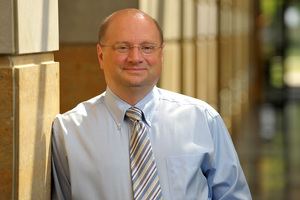
The Nobel Committee chose quite brilliantly in selecting Barack Obama. Those who say that the President does not deserve the peace prize because he has not accomplished anything more than “delivering a series of well-crafted speeches” or, more generously, “set a new tone” and “charted a new direction,” betray a stunted notion of what constitutes peacebuilding. For a fuller notion of peacebuilding, consider:
First, the daunting set of problems facing the world—from nuclear proliferation to environmental degradation to resource wars that draw upon and deepen ethnic, religious, and national animosities. Take note of the growing realization that these problems are interconnected, global in scope and scale, and beyond the capacity of any one nation, or bloc of nations, to manage effectively. Keep in mind, as you ponder the intractability of these problems, the message conveyed to the world over many years by the world’s most powerful nation, that “you are with us or against us,” that any “partnership” between peoples and nations begins from our set of assumptions and values and ends there.
Then, feel the psychological impact of the accumulating expressions, at home and abroad, of mistrust, hatred, racism, ethnic warfare, religious extremism, and violent nationalism. Now factor into that picture a black President who refuses to take the bait, whether its source be racial, religious, ultranationalist, partisan, or privileged. A President who acknowledges human dignity based not on color, faith, or citizenship but inherent in our common humanity. Decidedly not a man who closes his eyes and ears to evil or papers over real conflict, but who powerfully draws the lines of division, not between classes, races, religions and nations but between those who want to work together, as authentic partners for the universal common good, and those who do not. A world figure who accepts the Nobel in the name of “the leader imprisoned in her own home because she refuses to abandon her commitment to democracy” [the Burmese peace advocate Aung San Suu Kyi] as well as “the soldier who sacrificed through tour after tour of duty on behalf of someone half a world away.
Finally, add to that mix the human resource, the quality of spirit, without which the hard and dreadful collaboration for sustainable peace and integral human development would be deemed a fool’s errand. And yet that quality, so essential but so elusive, can become the foundation for genuine progress only if it is articulated and embodied in an unlikely person who somehow represents, in words, action, and presence, the sweet suspicion we all harbor, that hope is not an airy platitude, but a necessary and reliable foundation upon which people of good will can collaborate to provide clean drinking water, access to quality education, the right to a living wage, and protection from violence and all the other conditions that make sustainable peace possible.
An audacious, and inspired, choice by the Nobel Committee.
Scott Appleby
Professor of History, John M. Regan Jr. Director of the Kroc Institute for International Peace Studies, University of Notre Dame
Appleby's comments may be used whole or in part.
Contact: Scott Appleby, 574-631-8500, rappleby@nd.edu